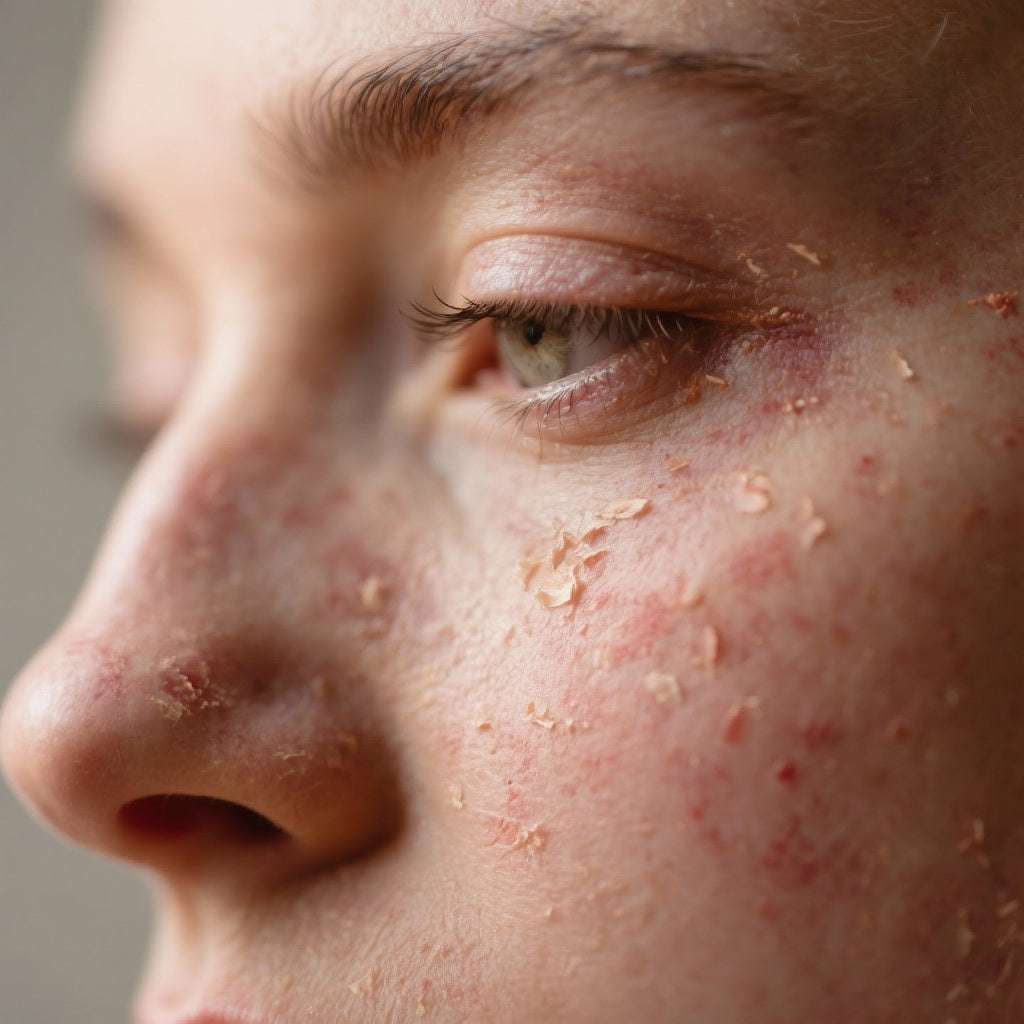82% of Natural Skincare Routines Irritate the Skin Barrier: Myth or Reality?
Are you passionate about natural skincare and believe it's the solution to all your skin problems? Think again! An alarming study reveals that up to 82% of supposedly "natural" skincare routines can actually damage your skin barrier. A disconcerting paradox, isn't it?
In this article, we'll delve into the heart of this problem. We'll explore why natural ingredients, often perceived as gentle and beneficial, can actually become enemies of your skin. We'll decipher common mistakes to avoid and give you the keys to building a truly effective and skin-friendly natural skincare routine.
Why Can Natural Ingredients Irritate the Skin?
The idea that "natural" automatically equates to "gentle" is a dangerous oversimplification. Many natural ingredients, while beneficial in certain contexts, can be irritating, sensitizing, or even allergenic for some skin types. Concentration, formulation, and combination with other ingredients play a crucial role.
The Case of Essential Oils
Essential oils, often praised for their therapeutic properties, are a striking example. Highly concentrated, they can cause significant skin reactions, especially in people with sensitive skin. Oils like lavender, lemon, or tea tree, while popular, are known for their potential to irritate.
"The skin is a living organ that reacts to its environment. Just because an ingredient is natural doesn't automatically mean it's good for your skin." - Dr. Claire Dupont, Dermatologist.
Excessive Exfoliation with Natural Ingredients
Sugar, salt, or baking soda are often used as natural exfoliants. However, their particles are often too abrasive and can cause micro-lesions on the skin, thus weakening the skin barrier. Exfoliating too frequently, even with natural ingredients, can also be harmful.
The pH of Some Ingredients Is Not Suitable
The skin's pH is slightly acidic (between 4.5 and 5.5). Using overly alkaline ingredients (such as Marseille soap, often touted as a natural product) can disrupt this balance and damage the skin barrier. Skin with an unbalanced pH is more vulnerable to external aggressors and irritations.
How to Identify the Signs of a Damaged Skin Barrier?
Recognizing the signs of a weakened skin barrier is essential for adapting your skincare routine. Here are some indicators to watch for:
- Redness and inflammation
- Sensations of pulling and discomfort
- Dryness and flaking
- Increased sensitivity to skincare products
- Appearance of small imperfections or eczema
Building a Natural Skincare Routine That Respects Your Skin
It is entirely possible to enjoy the benefits of natural ingredients without compromising your skin's health. Here are a few tips to follow:
- Opt for gentle and soothing ingredients: Aloe vera, colloidal oatmeal, calendula or shea butter are excellent choices for sensitive skin.
- Test products on a small area: Before applying a new product to your entire face, test it on a small area (such as behind the ear) for 24 hours to check for any reaction.
- Avoid irritating essential oils: If you use essential oils, make sure they are well diluted and choose mild oils such as German chamomile or Damask rose.
- Don't exfoliate too often: Limit exfoliation to once or twice a week and use gentle exfoliants like fruit enzymes.
- Hydrate your skin daily: Use a moisturizing cream rich in ceramides and essential fatty acids to strengthen the skin barrier.
- Consult a dermatologist: If you have persistent skin problems, don't hesitate to consult a dermatologist for a diagnosis and personalized advice.
Natural Active Ingredients to Favor
Certain natural ingredients are particularly beneficial and safe for the skin. These include:
- Hyaluronic acid (of plant origin): a powerful moisturizer
- Antioxidants (vitamin C, vitamin E, polyphenols): protect the skin from free radicals
- Probiotics: strengthen the skin barrier and balance the skin microbiome
The Key: Balance and Knowledge of Your Skin
In conclusion, it's crucial not to fall into the trap of thinking "natural" is synonymous with "harmless." An effective natural skincare routine relies on understanding your skin type, selecting gentle and suitable ingredients, and paying close attention to your skin's reactions. Don't hesitate to consult a skincare professional to guide you in your choices and create a personalized routine that will deliver visible and lasting results.











